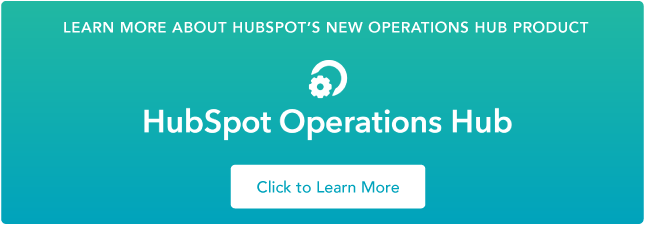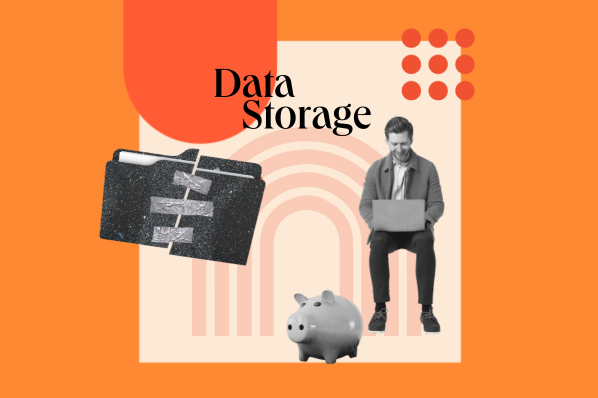The rise of data democratization marks a shift in how organizations manage their data across departments. Historically, a company’s data assets were owned by its IT department. IT would be responsible for cleaning, storing, and updating the data, and distributing access when requested. That last one is key — if anyone outside of IT who needed data had to first consult with IT, which creates a bottleneck and slows progress.
Data democratization aims to eliminate this barrier by providing anyone in an organization with open access to the data they need, whenever they need it, with no gatekeepers in the way. This approach to business intelligence is also called “self-serve analytics” because line-of-business employees can gather, analyze, and report on data without support from technical staff.
 Data democratization is being embraced by data-driven businesses that want to get the most mileage out of their data, break down information barriers, prioritize alignment (with the help of other new concepts like RevOps) and ultimately grow faster than competitors. Next, let’s discuss what makes data democratization such a powerful idea.
Data democratization is being embraced by data-driven businesses that want to get the most mileage out of their data, break down information barriers, prioritize alignment (with the help of other new concepts like RevOps) and ultimately grow faster than competitors. Next, let’s discuss what makes data democratization such a powerful idea.
Benefits of Data Democratization
We’ve already talked a bit about why data democratization is a positive for data-driven businesses. In this section, we’ll unpack it further and explore the key benefits of data democratization.
In a typical enterprise, you have many teams with their own unique data needs. Marketing teams need data to measure the success of campaigns and determine when and how to make future plays. Sales needs data to identify the best prospects and close more deals. Support needs data to identify recurring challenges that customers experience and diagnose them more quickly. Product teams look at usage data to get a sense of which features to add, improve, or sunset. And the list goes on.
Considering just how many stakeholders rely on data to do their jobs, it’s clear how an inefficient data distribution model can slow productivity and business growth significantly. It might not seem like a huge deal at first having to request data from someone else, except you might have to wait days or weeks before IT even approves your request. And that’s assuming you know where to make the request, which itself is a challenge when a company has multiple data sources and owners.
This information bottleneck isn’t the only barrier between users and data, either. After you get your data, you might just be handed a giant spreadsheet that you have to parse yourself. Not only will you waste more time making sense of the data — it might even discourage you from requesting data in the first place, if only to avoid the friction. That’s the opposite of a data-driven approach.
Data-democratized businesses work to lower these barriers as much as possible. Instead of requesting data from IT like movies from Blockbuster, employees leverage self-service analytics to retrieve the data on-demand and uncover insights, even without deep technical knowledge of data management.
The ultimate benefit to all of this? When a larger, more diverse group of employees can access and review data quickly and easily, they can make better decisions quickly and easily, which in turn makes the business more competitive. Marketers can launch more effective campaigns, sales teams bring in more customers, support can better retain valuable customers, and product can … well, make better products, all because the company’s data is instantly accessible compared to other companies that are stuck in the old way of doing things.
Challenges of Data Democratization
For all the benefits that data democratization brings, it also has its own challenges that any organization will need to address. These aren’t necessarily reasons to avoid data democratization altogether, but they are worth preparing for.
Cost of Implementation
Of course, this isn’t something you can just snap your fingers and poof it into existence. Pursuing data democratization requires a serious investment, as well as systematic reevaluation of an organization’s data assets and methods. The entire implementation process can take months, and you must have the headcount and budget to do it right.
Accuracy of Data
To push adoption of your company’s open data sharing, users need to trust that the data they’re pulling is accurate and high-quality. This is easier said than done, especially if data is stored across multiple isolated silos.
Establishing trust means committing to data governance, which ensures that data is usable. Every business will approach this differently, but often the first step is to establish a single source of truth from which users can extract data, so there’s no doubt as to whether the data is reliable.
Misuse of Data
One common argument against data democratization is that companies shouldn’t give open data access to just anyone. Since It’s no longer IT’s responsibility to determine who sees data and when, this opens up the possibility of misinterpreting or misusing the data, leading to misguided decisions.
It’s a valid concern, which is why businesses with democratized data usually train employees on how to access and interpret company data properly. A cornerstone of data democratization is also selecting tools that make data easy to interpret for non-technical employees.
Security Risks
Shared data necessitates strict security measures to protect a company’s assets, especially with personal information like identifying customer info or medical information. Additionally, regulations like the GDPR must be followed.
It’s important to clarify here that data democratization does not mean that every employee has access to all data at all times. Access controls, security monitoring, and other protection measures can and should be applied, and private information should only be available to authorized users.
Culture of Data
Adopting a democratized approach to data usually accompanies a company-wide shift toward a more data-driven work culture. It requires employees at every level to reevaluate how data incorporates with their work, and actively share data across teams to prevent silos. Teams must become comfortable bringing data into their day-to-day decisions.
This mindset shift may be more difficult to achieve than any technical changes, but it will ultimately make a business more competitive by leveraging data more quickly and effectively, a necessity in any enterprise today.
Tools for Data Democratization
Data democratization has become far more attainable thanks to advancements in data management software that allow for more efficient data management and analysis. Every company utilizes a set of software tools — called a software stack — for collecting, cleaning, storing, distributing, and interpreting data.
Here are some general categories of data management tools that businesses use:
- Data warehouse: A data warehouse is a system that stores large volumes of data from different sources. It allows users to perform queries to retrieve data and view how the data has changed over time.
- Data Catalog: A data catalog is a tool that indexes a company’s data assets and allows users to quickly search for data using keywords, similar to a Google search.
- ETL and/or ELT tool: These tools move raw data from third-party sources into a company's data warehouse, while transforming it into a more usable format.
- Self-service analytics tool: A self-service business intelligence tool gives employees the ability to collect and interpret data with the help of visualizations. This kind of tool does not require data expertise to use, enabling anyone in the business to make data-informed choices.
Data Democratization: Faster, Smarter, Data-Driven Decisions
Ensuring a free but secure flow of data throughout a company, no matter its size, is an investment. Not just a one-time investment, either — for data democratization to be successful, a company must commit to continuous upkeep and optimization of systems to ensure everyone can access what they need when they need it, as well as train employees on how to employ data analysis in their work.
We’re just starting to see the results of this new movement, and the timing can be a bit of a double-edged sword. On one hand, we haven’t seen data democratization proven successful across businesses to be certain it works. However, data experts agree that data democratization is where big data management and business intelligence are going. Now is, quite possibly, the best time to get on board and pull ahead of the pack.











